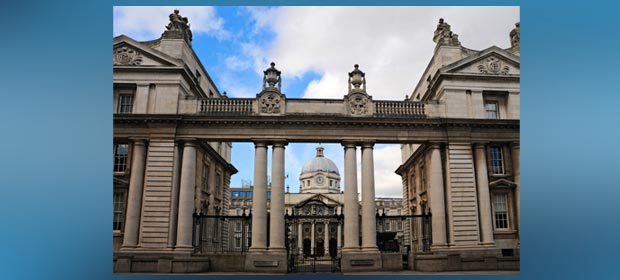Health managers appearing at Dail Committees are only completely protected from legal action as a result of the evidence they give to the Committees if they stick to the rules, says Maureen Browne.

Health managers giving evidence to Dail Committees have absolute privilege, which gives them immunity from legal action as a result of the evidence they give to the Committees – provided they stick to the rules.
With more and more health managers likely to be asked to give evidence before one or other of the Dail Committees, it is now of vital importance for managers to know when and where they are exempt from being sued as a result of evidence they give to Committees or the replies which they give to questions put to them by Committee Members.
The Members of the Dail Committees themselves have absolute privilege during Committee hearings as they have during Dail business. This means that they cannot be sued as a result of statements they make in the Oireachtas or Dail Committees.
The Dail rules state that witnesses giving evidence to Committees are also protected by absolute privilege in respect of the evidence they give to the committee.
The Member of the Commons who was behind this direct act against the King and his court, was put on trial and sentenced to death for treason.
However, it goes on to warn that if a witness is directed by a committee to cease giving evidence in relation to a particular matter and the witness continues to so do, the witness is entitled thereafter only to a qualified privilege in respect of his or her evidence.
Broadly speaking, qualified privilege is an immunity from legal action, (usually a lawsuit for defamation) for acts committed in the performance of a legal or moral duty and acts properly exercised and free from malice. If malice can be shown, qualified privilege is not a protection against defamation.
Since many cases where qualified privilege is invoked as a defence involves journalists and newspapers, a judgment involving the Sunday Times and former Irish Taoiseach Albert Reynolds, is of interest. In this case the judgment outlined a ten point test of ‘responsible journalism’. If reporters and editors followed these points, the judge said, they would enjoy a degree of protection from libel action, even if they could not prove factual allegations.
To qualify for this defense, a report must be one of a public meeting/press conference that’s:
- Fair
- Accurate
- Published without malice
- Subject to the right of reply in the form of a letter that gives explanation or contradiction
- It need not be contemporaneous (depending on publication), where it has to be for absolute privilege
At the outset of Dail Committee hearings, witnesses are also directed that only evidence connected with the subject matter of those proceedings is to be given and they are asked “to respect the parliamentary practice to the effect that, where possible, they should not criticise nor make charges against any person or persons or entity by name or in such a way as to make him, her or it identifiable.”
The origins of parliamentary immunity date back to 1397 when the House of Commons passed a bill denouncing the costs of the household of King Richard II of England. Thomas Haxey, the Member of the Commons who was behind what has been termed “this direct act against the King and his court,” was put on trial and sentenced to death for treason. Following pressure applied by the Commons, however, the sentence was not carried out, and Haxey received a royal pardon, but was deprived of his title and his possessions.
However, following this, the House of Commons, concerned about the predicaments in which members of Parliament could find themselves moved towards the right of free speech within Parliament and the concept of parliamentary privilege evolved.

